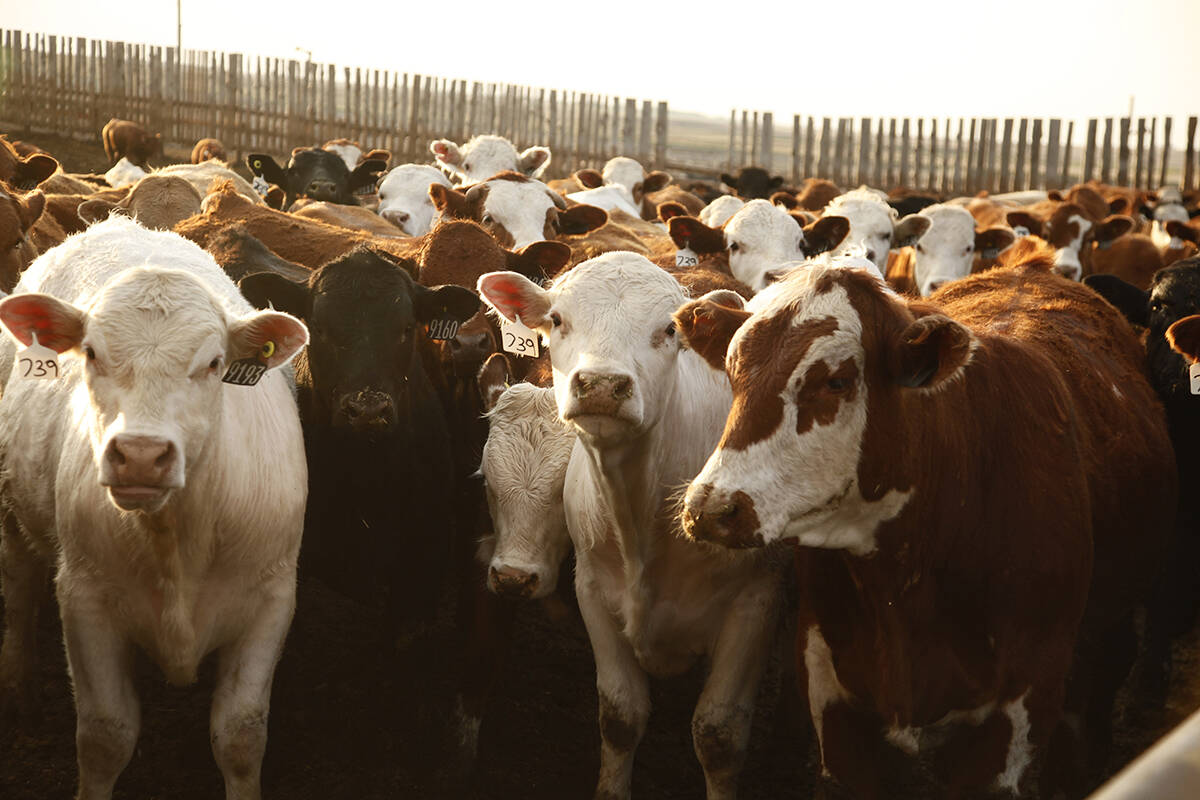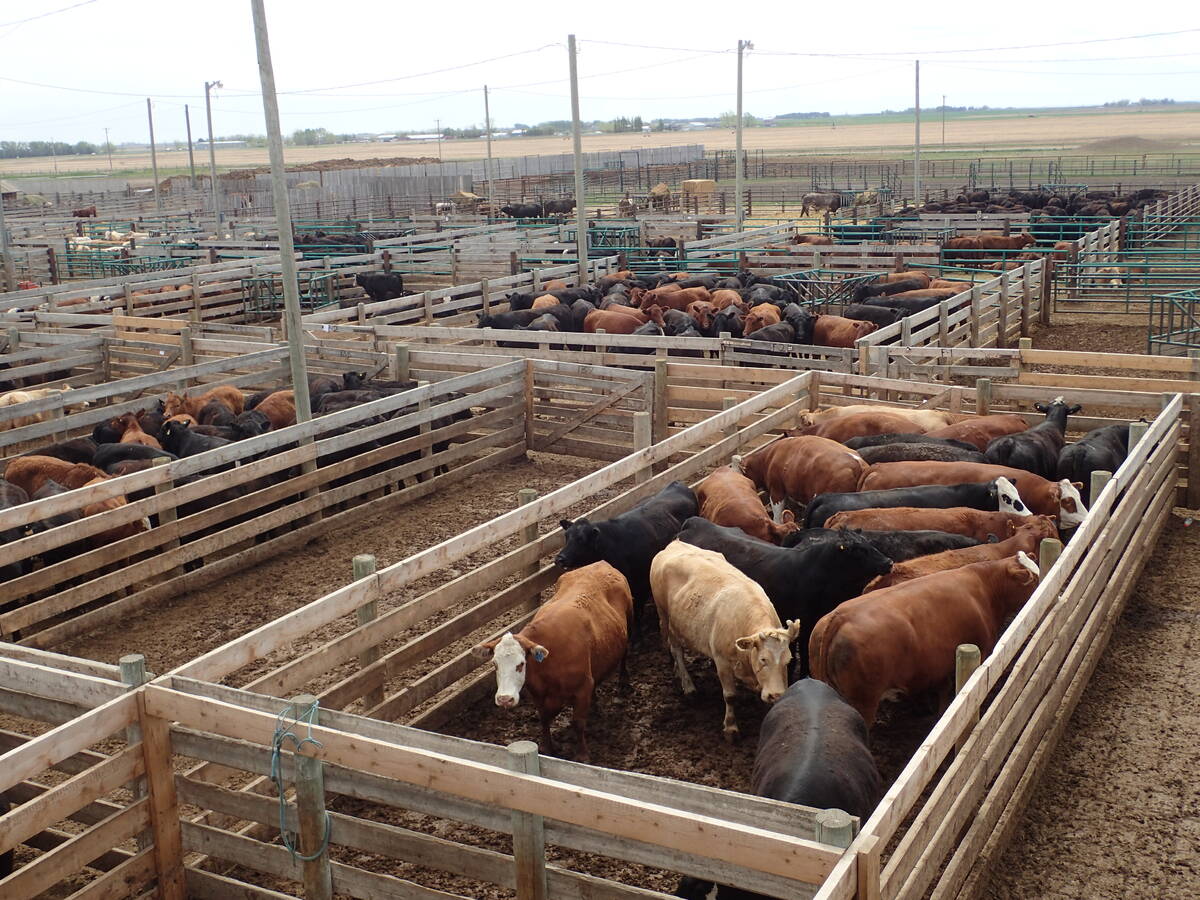This cattle market information is selected from the weekly report from Canfax, a division of the Canadian Cattlemen’s Association. More market information, analysis and statistics are available by becoming a Canfax subscriber by calling 403-275-5110 or at www.canfax.ca.
Fed prices on the move
Weighted fed prices continue to rise, closing the week ending March 21 within $5 per hundredweight of February’s record highs.
Read Also

Canada’s simplified BSE testing program shows good uptake
Going by the number of submitted material samples so far, cattle producers’ response so far to an updated national surveillance program for BSE is encouraging for Canada’s CFIA.
Alberta fed steers closed the week at $272.97 per cwt., up $2.21 per cwt. from the previous week, while fed heifers ended the week at $268.01 per cwt., hovering around the previous week’s prices.
Canfax reported that yearling supplies are starting to wind down, and fed calves will reach the market in about 30 to 45 days.
In Alberta and Saskatchewan, dressed sales were reported in the range of $450-455 per cwt. delivered. Cattle were purchased by all three western Canadian packers, with some cattle purchased flat, without heavy-weight carcass discounts.
Because western Canadian fed slaughter has yet to exceed 40,000 head this year, it suggests that western Canadian packers are still operating at reduced hours.
Lower volumes of western Canadian fed cattle were sold into the United States, with sales reported at a premium over local deals.
In Ontario, dressed sales remained fully steady with the previous week at $450 cwt. delivered, with cattle to be picked up in one to two weeks.
Ahead of U.S. tariffs potentially taking effect April 2, Canfax reported that producers are taking two different approaches in light of the situation.
The first is to aggressively market their cattle, leaving them in a comfortable sold-out position. The second approach is to buy fed cattle insurance and focus on gaining additional pounds on their cattle.
Cow prices rise
Prices were hot on the Alberta non-fed market the week ending March 21.
Auction markets reported butcher cow prices rising $5-$7 per cwt. from the previous week.
D2 cows set a new all-time high price at $204 per cwt., while D3 cows were just shy of the all-time high set three weeks prior, closing at $188 per cwt. Feeders cows also set a new record-high price, rising by $12 per cwt. to close the week at $209 per cwt.
Butcher bulls brought $230 per cwt., $10 per cwt. higher than the previous week.
Rail grade cows traded in the range of $375-395 per cwt., rising by $15-$25 per cwt.
Ontario D2 cows ended the week at $175 per cwt., while D3 cows brought $150 per cwt.
Year-to-date western Canadian non-fed slaughter volume is seven per cent lighter than in 2024, and cow slaughter is down by 11 per cent. Eastern Canadian non-fed slaughter volume is down five per cent from 2024 volumes, with cow slaughter five per cent lower.
Feeder market strong
Stronger prices characterized the feeder market, with 550 pound steers being the only weight class not to see higher prices than the previous week.
The past two weeks saw both 550 lb. and 850 b. steers rebound, rising by $18.47 per cwt. and $21.75 per cwt., respectively. This brings 850 lb. steers back in line with record-high prices, while 550 lb. steers are $4.02 per cwt. below record highs.
The week ending March 21 saw significant rallies for 550-lb. and 850-lb. heifer prices, strengthening by an average of $9.28-$11.45 per cwt. This brings 550-l b. heifer prices within $10 per cwt. of the record highs set in January, and 850 -lb. heifers are even closer at $1.43 per cwt. from record high prices.
The feeder cattle contract closed March 21 at $286.47 per cwt., $1.87 per cwt. shy of the annual high.
Canadian feeder cattle exports to the U.S. for the week ending March 8 were 1,202 head. This decrease is a result of that week’s tariff volatility, leading to the smallest weekly export volume since the first week of 2025.
Auction rush expected
Canfax anticipates auction volumes increasing prior to the April 2 tariff announcements, and it reported that the feeder market remains strong despite this uncertainty.
Cutouts rally
U.S. cut-out prices rallied the week ending March 21, likely due to some packing plants in Kansas and Nebraska closing because of severe winter weather.
Choice ended the week at $328.06 per cwt., rising 2.6 per cent from the previous week. Select rose by a mere 0.6 per cent to end the week at $309.36 per cwt.
The Choice-to-Select spread jumped to $18.70 per cwt., a spike usually not seen until the first half of May. This spread is $8 per cwt. wider than this time last year and $10 per cwt. wider than the five-year average.















